
A Quick Guide to Your Baby’s Speech and Language Development - Birth to 6 Months
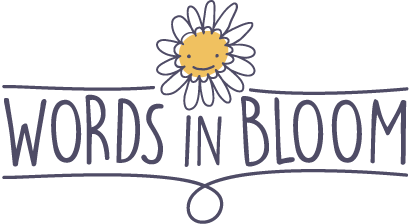 Speech and Language Milestones
Speech and Language Milestones
By 6 months, your baby:
- reaches for objects of interest, like a toy
- turns towards a sound source or startles in reaction to sudden, loud noises
- responds to their name
- makes different cries for different needs, such as when hungry or tired
- smiles and laughs in response to your smile and laugh
- plays with sounds, like squeals, growls, gurgles, raspberries or maybe even speech sounds like “dah” or “buh”
- starts to imitate speech sounds and non-speech sounds
- recognizes familiar faces and objects (such as a bottle)
- is soothed by calm noises
- follows moving objects with his eyes
- responds to music or toys that make noises
- turns their eyes towards a sound source
A referral to the Words in Bloom program may be needed if your child is not meeting most of these milestones.
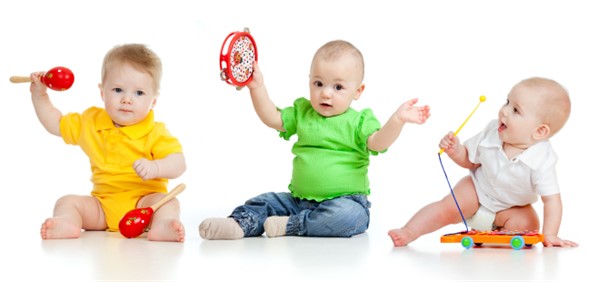
Building Blocks for Developing Your Baby’s Speech and Language Skills
- Give your baby many opportunities to see your face during your regular routines. Your baby can pay attention to you and you can see what they are interested in, allowing you to give words to what they are looking at.
- Read to your baby. This starts at a very young age. Your baby will enjoy the time spent with you and will love to hear your soothing rhythmic voice.
- Show a favourite object… then pull it away or start a favourite activity, and then pause it. You will be teaching your baby to use their voice to ask for something and practice taking turns.
- Give meaning to messages. When your baby sounds as if they are trying to ask you a question, make a demand, or make a statement… respond to them as though they are saying something important.
- Talk and sing regularly. Sing when dressing, feeding, changing a diaper, or at bedtime. Your baby loves to hear your voice all the time.
- While you are out with your baby, talk about what you are doing and seeing. Babies need a variety of experiences to learn and grow.
The Importance of Play
Play is the most enjoyable way to promote your baby’s speech and language skills.
- Look at your baby when you are talking to him. Have fun with your facial expressions and watch as your baby tries to imitate you (even try sticking out your tongue).
- Bring your baby close when you play. This will establish eye contact necessary for communication.
- Babies enjoy adult attention in games such as pat-a-cake, peek-a-boo, and tickle games.
- Babies enjoy looking at picture books. Try books with real photographs, bright colours, textures, or sounds as these will interest your baby most at this stage.
- Clap hands, count fingers and toes, or rock your baby while singing songs and reciting nursery rhymes like “This Little Piggy,” “Are You Sleeping?” or a song/rhyme that you made up.
- Imitate your baby’s sounds. Back and forth sound play leads to turn-taking in games and in conversations later.
- Smile, laugh and be animated which will help your baby pay attention to you.
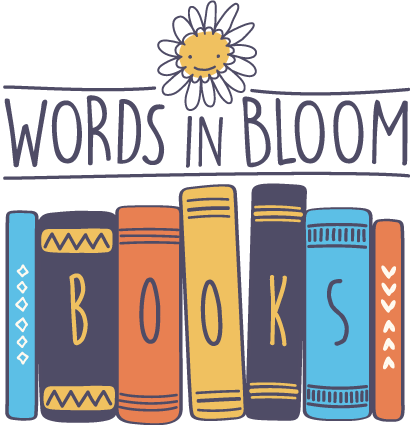 BOOKS
BOOKS
Best Book Types:
- Board books
- Plastic books
- Cloth books
- Touch and feel books
- Books with bright pictures
- Books with pictures of familiar objects (especially animals)
Observe Your Child:
- First your baby will explore books the same way they explore toys (by chewing, throwing, banging, shaking, feeling, squeezing, opening and closing them).
- Later, your baby will start to focus on the pages by taking an interest in pictures and by turning the pages.
Opt to Join In:
- Encourage your baby to explore the book in their own way.
- Let your baby chew, shake, and bang the book.
- Watch them closely to see what they are interested in.
- Name the things you and your baby see.
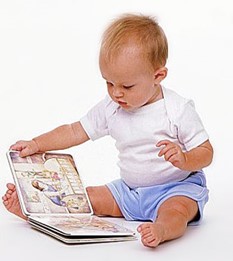
Keep Having Fun:
- Use an animated and playful voice.
- Let your baby be in charge of the book.
- Play with a favourite book over and over again.
Some Suggestions:
- Cloth Book: Who Do You See? by Will Grace
- Pat the Bunny by Dorothy Kunhardt
- Animals on the Farm Series: My First Noisy Bath Books by Caroline Davis
- Touch and Feel Book: Fuzzy Bee by Roger Priddy
Did You Know?
- Babies love the rhythm of music. Sing to your baby often!
- When singing, repeat the song over and over again. Babies love and learn through repetition. Sing, sing, and sing some more!
- Bath time is so much fun for babies! Splash the water, pat the water, pour water over your baby. Make fun noises while having lots of fun!
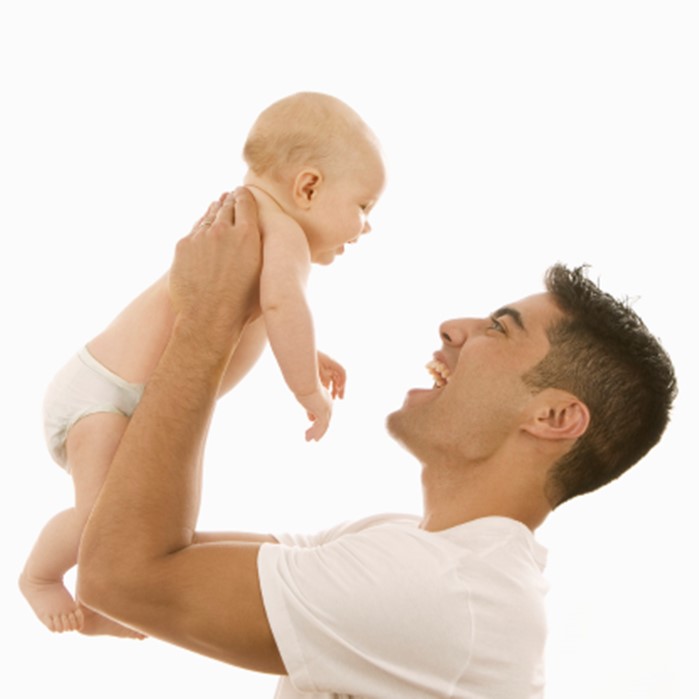 Frequently Asked Questions
Frequently Asked Questions
Q: Will using signs with my baby delay him from using words?
A: Using gestures and signs is actually shown to enhance your baby’s ability to acquire new words.
Q: I’ve heard that using baby talk is not beneficial to my child’s speech and language development. Is this true?
A: Baby talk, when you change your tone of voice, is helpful in getting your baby’s attention which will help them understand your words. Words like “baba,” “num-num,” and “si-si,” on the other hand, are “baby” words. This type of talk will hinder your baby’s speech and language development. Always use REAL words.
Q: Is there a need for me to talk to my baby before she is able to talk?
A: Yes. Babies learn about their world by listening to you talk. Your baby will learn to talk through the interactions they have with you.
If you suspect your child is having difficulty communicating, don’t wait! Follow your instincts. Friendly, confidential help is only a call away.
Contact Words in Bloom by calling the EOHU at 613-933-1375 or at 1-800-267-7120.

